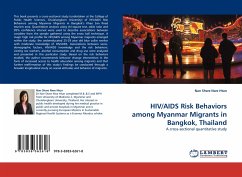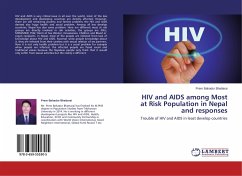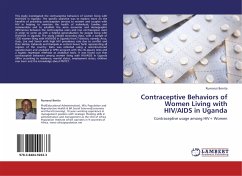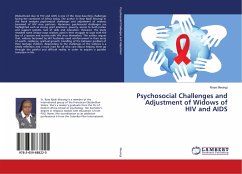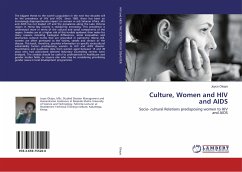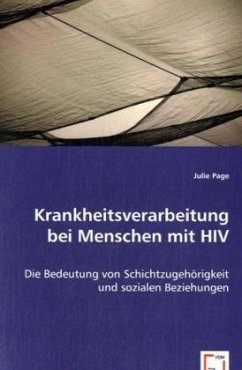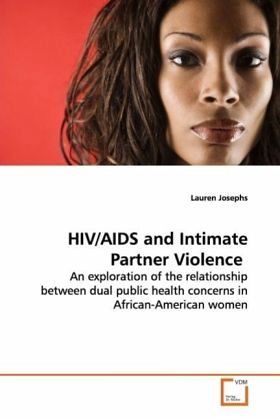
HIV/AIDS and Intimate Partner Violence
An exploration of the relationship between dual public health concerns in African-American women
Versandkostenfrei!
Versandfertig in 6-10 Tagen
45,99 €
inkl. MwSt.

PAYBACK Punkte
23 °P sammeln!
African-American women bear the brunt of HIV s assault on the United States. They are the fastest growing group of HIV-infected individuals in the US. While African-American women make up 13% of the female population of the United States, they comprise 67% of the newly reported AIDS cases. African-American women are more likely to be infected through heterosexual intercourse than any other method While some factors influencing the spread of HIV/AIDS have been well researched, other areas need to be more closely examined. Such is the case with Intimate Partner Violence (IPV). IPV has been shown...
African-American women bear the brunt of HIV s
assault on the United States. They are the fastest
growing group of HIV-infected individuals in the US.
While African-American women make up 13% of the
female population of the United States, they
comprise 67% of the newly reported AIDS cases.
African-American women are more likely to be
infected through heterosexual intercourse than any
other method While some factors influencing the
spread of HIV/AIDS have been well researched, other
areas need to be more closely examined. Such is the
case with Intimate Partner Violence (IPV). IPV has
been shown to be a risk factor for numerous
unfavorable health outcomes including HIV. However,
the concern seems largely directed to countries
where women s rights are extremely limited. In the
United States however, further exploration is
necessary to determine the relationship between
Intimate Partner Violence and HIV.
assault on the United States. They are the fastest
growing group of HIV-infected individuals in the US.
While African-American women make up 13% of the
female population of the United States, they
comprise 67% of the newly reported AIDS cases.
African-American women are more likely to be
infected through heterosexual intercourse than any
other method While some factors influencing the
spread of HIV/AIDS have been well researched, other
areas need to be more closely examined. Such is the
case with Intimate Partner Violence (IPV). IPV has
been shown to be a risk factor for numerous
unfavorable health outcomes including HIV. However,
the concern seems largely directed to countries
where women s rights are extremely limited. In the
United States however, further exploration is
necessary to determine the relationship between
Intimate Partner Violence and HIV.




